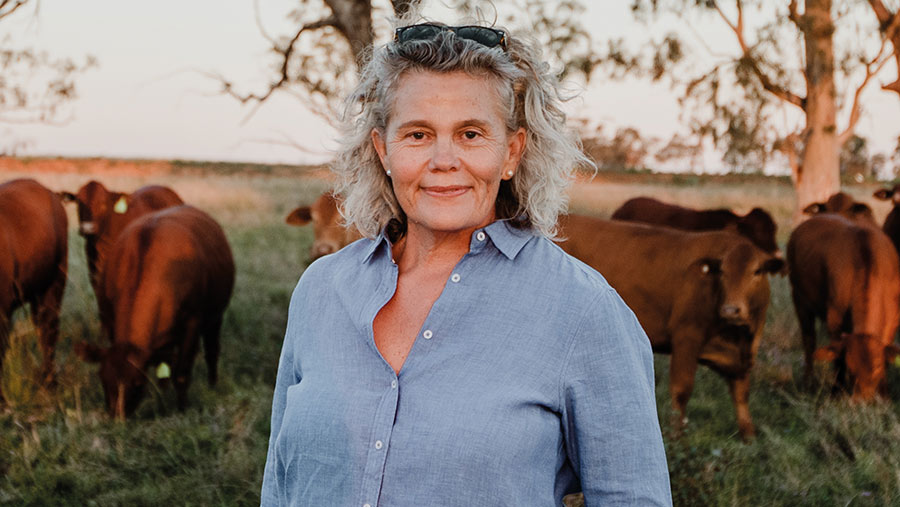Opinion: Nothing to fear from a free-trade agreement with Australia
 Fiona Simson © Fiona Simson
Fiona Simson © Fiona Simson Fiona Simson is the president of Australia’s National Farmers’ Federation. Here she argues that there is more that unites us than divides us when it comes to agriculture and trade deals.
I’ve been listening to the concerns of the National Farmers’ Union and others that a trade deal with Australia could hurt UK farming families and communities. Although it’s easy to focus on the differences between us, what always strikes me is how many similarities there are.
The fact is, more than 95% of Australian farms are family owned and, while we are sometimes bigger and our farming systems are obviously different, many of the challenges remain the same.
See also: Farmers to protest against Australia tariff-free trade deal
The recent once-in-a-generation drought pushed our farmers and villages to the brink. While, thankfully, the rains have arrived and pastures, dams and rivers have mostly regenerated, our communities are still recovering.
During the “big dry”, many farmers went without an income for successive years and small businesses that relied on the trade of farmers closed.
The challenge of climate change is a shared one, as is the looming threat of government regulation and ever-increasing customer expectations on sustainability, animal welfare and food safety.
But when it comes to trade, the Australian National Farmers’ Federation has been strident in ensuring that ties between Australia and the UK are leveraged to create benefits for both Australian and British farmers.
No threat to sheep and cattle farmers
It is in this spirit of solidarity that I want to reassure UK sheep and cattle producers that there is nothing to fear from a free-trade agreement with Australia.
In 2020, the UK imported 314,00t of beef, with only 1,567t coming from Australia, accounting for just 0.12% of total British beef consumption.
With the EU providing more than 95% of all imported beef to the UK, any increase in volumes of Australian beef is likely to displace EU imports before affecting British beef production.
The tyranny and cost of distance, and an insatiable and growing appetite for red meat on Australia’s doorstep mean the UK will be an important, but small export opportunity for Australia. The lion’s share of our red meat goes to our near neighbours: Indonesia, Vietnam, Korea, Japan and China.
As an exporting industry, it is in the best interests of Australian farmers to have a diversified trade portfolio. In a complex and volatile global trading environment, it would be reckless not to.
So, during the past two decades, our government has negotiated 14 separate trade agreements and our beef now goes to about 50 destinations. These agreements continue to deliver benefits for both parties – exactly what a trade deal should do.
The Australian government has worked with the agricultural sector on a comprehensive export strategy, including establishing a network of international agricultural counsellors to identify new opportunities, overcome technical trade barriers and diversify the products and markets we trade in.
We hope the British government will provide its farmers with similar tools, forums and insights.
But the close bonds between our two countries and farming communities also allow us to be frank with each other, and I do feel the need to correct the record on statements made about Australia’s standards on sustainability and animal welfare.
Australian agriculture has leading practice on these standards and, while the processes underpinning them might differ from the UK to account for different farming systems and climate, the outcomes are the same.
We pride ourselves on producing world-class beef and, in my opinion, the world’s most succulent lamb. Of course, we’d love nothing better than to share this with the UK consumer, but only if and when they want it.
